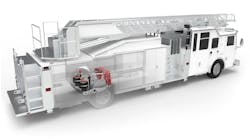After making sure an ATF meets the specific requirements instructed for a vehicle, another question that might be asked is whether to use synthetic ATF or petroleum ATF. There was a clear preference among the experts interviewed by Fleet Maintenance.
"With the ever increasing demand on the fluid, it is imperative to look toward full synthetics," says Steve Rober, National Sales Manager, Schaeffer Specialized Lubricants. "Synthetics are a natural in this environment as they have an exceptionally High Viscosity Index and can, therefore, handle the higher heat and low temperature startups with the best performance and longevity.
"It is hard to point out a few that are superior to others, but fluids using a full synthetic certainly have an advantage for the end user."
"Just like motor oils, synthetic ATFs have a distinct advantage over conventional oils," says Ed Newman, Advertising Manager, AMSOIL. "Synthetics will allow the transmission to shift better in cold weather and will resist sludge and varnish better than petroleum. Synthetics will generally allow for longer service life."
"Fully synthesized hydrocarbon synthetic lubricants, both for fully automatic and manual transmissions, generally offer optimum performance benefits," says Mark Betner, Mystik Product Manager, CITGO. "These include both lubricant service life and transmission life two or three times longer than conventional mineral oil type lubricants. It is equally important to know that these results are always subject to operating conditions, quality of maintenance and equipment specifications."
Rober adds that in the end, it is best for one to do their homework and figure out what will be suitable for their specific use. "It is a best practice for the end user to do some research both on the makeup of the fluid and to see what other users are saying about the performance of the product they are using," he says.


